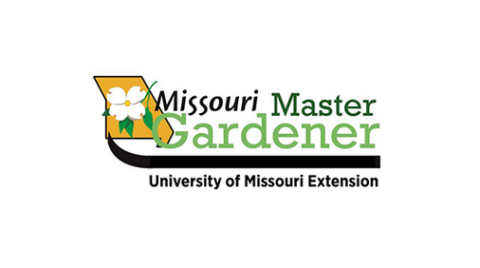Description
Syllabus
Course Description
Thank you for enrolling in Master Gardener Core Training offered by University of Missouri Extension distance education. Everyone who assisted in the development of this course hopes your learning experience will be meaningful and enlightening. Please review the following introduction to the course before beginning chapter one.
The manual for this course is the Missouri Master Gardener Manual. You can download this manual for free to your computer or to print as a PDF, chapter by chapter. There are 14 chapters in all, MG1-MG14, listed under chapters. If you prefer a hardcopy that is prepared for you and shipped to your address, click the Add to Cart button at the top right of the page and complete your order at an additional cost.
Course Objectives:
- To understand the mission of the Missouri Master Gardener Program and how it functions.
- To acquire a working knowledge of the fundamental principles of plant growth and development.
- To apply concepts of plant growth and development to everyday situations and uses in horticulture.
- To learn basic terminology associated with the art and science of horticulture.
- To gain an appreciation of horticulture as a life-long pursuit.
Master Gardener online core training is a semester-long course organized by weekly learning modules. The scheduling of the course coincides with the University of Missouri’s fall and spring semesters. The course is offered by the Extension Division of the University of Missouri and does not carry official University course credit.
Course Organization
Weekly Activities
Each week, you will explore one chapter of the Master Gardener Core Manual. These chapters have been organized into educational modules to facilitate learning. Each chapter includes:
- Online presentations - (Each video is close-captioned with an audio transcript available for download, located at the bottom of the video player screen.)
- Web resources
- A full-length mp3 of each module
- An online discussion
- A quiz
Different instructors, each with expertise in the area of their presentation, will present the material in the form of narrated PowerPoint presentations.
The course calendar includes the schedule for the entire course. Basically, one chapter will be covered each week over a 15-week period. A week starts on Sunday morning at 12:01 a.m. and ends the following Saturday night at 11:59 p.m. Please try to stay on schedule. This will make the class material and the online discussion more meaningful for you.
There are two types of students taking this class:
Master Gardener Trainees.
These are individuals educating themselves to volunteer as University of Missouri Extension Master Gardeners. The requirements for a Master Gardener are to complete the activities in each chapter including answering quiz questions at the conclusion of each chapter. Additional information about quizzes is outlined below under “Features of the Class”. Each chapter also includes discussion questions that each student should post a response to. It is important that each student take time to view other student responses and provide feedback or ask questions to facilitate further discussion.
A cumulative score of 70 percent over all chapter quizzes is required in order to pass this course. Additionally, Master Gardener Trainees must complete the required number of volunteer hours (outlined in Chapter One) in order to become a Certified Master Gardener. Upon registration, your name and contact information will be given to the Extension Specialist responsible for Master Gardener programming in your area. Once you contact that individual, they will help you to identify volunteer opportunities and show you how to report those hours on the University’s Master Gardener web page.
After completing both the online training course and the required volunteer hours you will be issued a certificate designating you as a Certified Master Gardener as well as a Master Gardener name badge.
Private individuals
Additionally, there are private individuals and/or industry professionals taking this course who simply wish to advance their knowledge of horticulture without becoming Certified Master Gardeners. These students must complete the activities in each chapter including taking the quiz at the end of each chapter. Each chapter also includes discussion questions that each student should post a response to. Take time to view other student responses and provide feedback or ask questions to facilitate further discussion. Upon completing the course with an average quiz score of 70 percent overall, these individuals will receive a certificate of completion. Volunteer hours are not required for these individuals since they have no intent to become Certified Master Gardeners.
Presentations
Each of the 14 chapters of the core manual are divided into learning modules. Modules contain narrated, pre-recorded presentations delivered by qualified, experienced specialists. Brief biographies of the presenters can be found under the link, "Meet the Specialists”. It should be your goal as a student to complete one chapter every week for a total of 14 weeks. This will help make the online chats more meaningful for everyone. While you may go back at any time to review a chapter, you will not be able to work in advance of the current week of the course.
Quizzes
As previously mentioned, there is a quiz that is to be taken upon completing the learning modules of each chapter. Each quiz is worth ten points, "open book” and may be taken twice if your first attempt does not result in a satisfactory score. You are encouraged to use the presentations, your core manual, the internet, and any other resource (other than a person) as you take the quizzes. A combined average of 70 percent over all 14 chapters is needed to pass the course. Individuals failing to achieve 70 percent must re-enroll in the course, preferably the next time it is offered.
Grades
You may view your grade progress at any time throughout the course. Select Grades from the course navigation menu at left. A page will open showing a Course total and two grading categories. The first category is the Volunteer agreement form only and is marked as "Unsubmitted" or "Form received". It has no scoring value but is required in order to complete the course.
The second category aggregates your quiz scores over all 14 quizzes. It displays an ongoing score that changes as you complete each chapter's quiz. You must average 70% over all 14 quizzes before successfully completing the scored category of the course.
Instructors
Dr. David Trinklein
David Trinklein is an Adjunct Associate Professor of Plant Sciences and State Floriculture Specialist in the College of Agriculture, Food and Natural Resources at the University of Missouri. His appointment includes both teaching and extension responsibilities. He teaches courses in greenhouse management, herbaceous ornamental plants, high tunnel vegetable production, and undergraduate seminar. His extension responsibilities include greenhouse management and the Missouri Master Gardener Program. His research interests include high tunnel technology and sustainable production.
Ms. Sarah Denkler
Sarah is a Regional Faculty Director for University of Missouri Extension, responsible for 18 counties in southeast Missouri. She has worked in the horticulture industry for over 25 years as an educator, landscaper or in commercial tree production. Her responsibilities with extension have included working with commercial fruit and vegetable growers, general ornamental horticulture, integrated pest management, organic gardening, food safety training, soil fertility and conservation, and insect or disease identification.
Discussions
The online written discussion is a required portion of the learning environment for students enrolled in this class. Each week instructors will ask questions related to the material and students will reply with a written answer, contributing to a continuous conversation that will provide experiential learning. Students may also post new questions about class materials using this format and check responses from fellow classmates and instructors. Instructors keep up with the discussion to ensure information is headed in a productive direction. This discussion is part of the weekly module of study. Each student should respond and check the current discussion each week. The first discussion, the icebreaker, will introduce you to the format. The purpose of this discussion is to get to know each other.
 Netiquette
Netiquette
For a successful online course experience, clear, thoughtful communication is essential. Discussion forums and course communications are important venues for exchanging ideas and promoting learning. Your instructor and fellow participants wish to foster a safe and inclusive online learning environment. Constructive criticism and questions are encouraged; however, you will be expected to remain professional and courteous in all of your posts. You are encouraged to comment, question or critique an idea, but you are not to attack an individual.
Our differences, some of which are outlined in the University of Missouri's nondiscrimination statement, will add richness to this learning experience. Please consider that sarcasm and humor can be misconstrued in online interactions and generate unintended disruptions. Working as a community of learners, we can build a polite and respectful course atmosphere. As your instructor, I reserve the right to delete any forum posts or blog entries I deem to be inappropriate for the course.
(Adapted with permission from MU Course Design & Technologies' Online Teaching Foundations)
Diversity
We value the voice of every student in this course. We embrace our diversity as a group—in race, gender, age, sexual orientation and gender identity, religion, language, ability, culture, ethnicity, socioeconomic and veteran status, —as an asset, resource and strength that is critical to our learning experience. As a result, we are committed to designing inclusive lessons and assignments that encourage diverse perspectives to be recognized and respected, while providing you with the opportunity to speak and be heard, explore your own understanding, and engage with one another.
(Adapted with permission from MU Teaching for Learning Center’s Teaching and Learning in the Diverse Classroom)
Course Completion
Once you have completed this course, obtaining a grade of 70 or better, you will be asked to complete an evaluation of the course and receive a certificate of completion. This confirms you have completed the course.
 Refund Policy
Refund Policy
If you feel this course is not what you expected or you are unable to navigate, a refund can be requested before 12:05 a.m. CST on the first day of class.
- Refund will be full course fee minus a 15-percent administrative fee and cost of any materials included in course fee that have already been sent to the student.
Requested up to seven days after the start of class
- The seven-day period will be calculated from 12:05 a.m. CSTon the first day of class.
- Refund will be full course fee minus a 40-percent administrative fee and cost of any materials included in course fee that have already been sent to the student.
Requested more than seven days after the start of the class
- The seven-day period will be calculated from 12:05 a.m. CSTon the first day of class.
- No refund.
Accommodations
We all learn differently, and we want every student to succeed. If you have a learning need or disability, please contact MU Extension ADA Support as soon as possible so we can provide you with appropriate accommodations.
Technical Requirements
For best performance, Canvas should be used on the current or first previous major release of Chrome, Firefox, Edge, or Safari. Because it's built using web standards, Canvas runs on Windows, Mac, Linux, iOS, Android, or any other device with a modern web browser.
Canvas only requires an operating system that can run the latest compatible web browsers. Your computer operating system should be kept up to date with the latest recommended security updates and upgrades.
Supported Browsers
Canvas supports the current and first previous major releases of the following browsers:
- Chrome 95 and 96
- Firefox 93 and 94 (Extended Releases are not supported*)
- Edge 94 and 95
- Respondus Lockdown Browser (supporting the latest system requirements)
- Safari 14 and 15 (Macintosh only)
Learners will also need some technical skills, which might include
- Using the learning management system
- Sending and receiving an email with attachments
- Creating and submitting files in commonly used word processing formats
- Copying and pasting
- Downloading and installing software
- Using presentation and graphics programs
See our Getting Started with Canvas page for short tutorial videos to provide an overview of Canvas. Download the Canvas Student App to access your Canvas course from your mobile device.
For the best user experience, we recommend using Google Chrome as your browser (Safari for Macintosh). If you don't have Google Chrome installed on your computer, you can download the latest version.
If you have questions or need additional help, please email Canvas Support. You can find more information on the technical requirements on the Canvas website.

